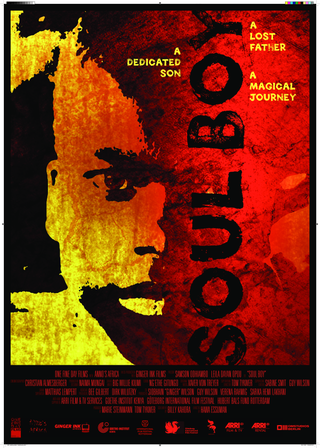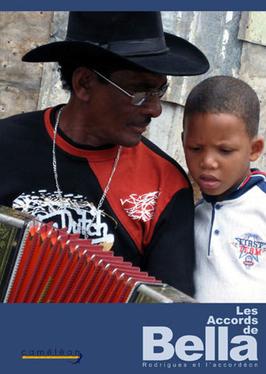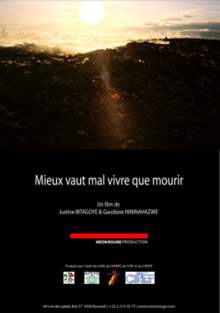
Namibia: The Struggle for Liberation is a 2007 epic film on the Namibian independence struggle against South African occupation as seen through the life of Sam Nujoma, the leader of the South West Africa People's Organisation and the first president of the Republic of Namibia. The film was written and directed by Charles Burnett and stars Carl Lumbly and Danny Glover. The production was financed by the government of Namibia. Music composed by Stephen James Taylor won the award for Best African Film at the Kuala Lumpur International Film Festival where the film also won for Best Music Score and for Best Director.

Soul Boy is a 2010 Kenyan drama film, written by Billy Kahora and directed by Hawa Essuman. It developed under the mentorship of German director and producer Tom Tykwer in Kibera, one of the largest slums in the African continent, in the middle of Nairobi, Kenya. The film has received five nominations at the 2011 Africa Movie Academy Awards.
The Festival of African Cinema (FCAT), also known as Tarifa-Tangier African Film Festival, originally African Film Showcase of Tarifa (2004–2006) and formerly African Film Festival of Tarifa (2007–2014), the African Film Festival of Cordoba (2012–2015), is an annual festival devoted to African cinema held in the Spanish city of Tarifa and the Moroccan city of Tangier.

De Voortrekkers is a 1916 silent film recognized as the first epic in South Africa's motion-picture history and also that nation's oldest surviving feature film. Produced by African Film Productions and directed by Harold M. Shaw, it portrays the Boers' "Great Trek" of the 1830s, concluding with a hegemonic recreation of the Battle of Blood River that occurred on 16 December 1838, when a few hundred armed Afrikaners defeated several thousand Zulus. Descendants of the Dutch-speaking voortrekkers or "pioneers" who participated in the Great Trek revered the film and used it to commemorate the event, which forms part of a highly contentious period in South Africa's history. Afrikaners presented it in school classrooms for decades and screened it annually at social events marking the battle's anniversary.
Il était une fois l'indépendance is a 2009 Malian film.
Il va pleuvoir sur Conakry is a 2007 French film.
Kinshasa palace is a 2006 film.
The Cassava Metaphor is a 2010 film.

La puerta de no retorno is a 2010 film.
Masquerades is a 2008 Algerian-French film directed by Lyes Salem.
La Résidence Ylang Ylang [The Ylang Ylang Residence] is a 2008 short film by Hachimiya Ahamada.

La Robe du temps is a 2008 film from Niger directed by Malam Saguirou, whose documentaries have won a number of international awards.
La tumultueuse vie d’un déflaté is a 2009 documentary film.
Le Fleuve Niger se meurt is a 2006 documentary film.

Les Accords de Bella is a 2007 anthropological documentary film directed by David Constantin. It was selected by the African Film Festival of Cordoba - FCAT.

David Constantin is a filmmaker from Mauritius.
Cinema of the Democratic Republic of the Congo originated with educational and propaganda films during the colonial era of the Belgian Congo. Development of a local film industry after the Democratic Republic of the Congo gained its independence from Belgium in 1960, and was handicapped by constant civil war.

Nabil Ghilas is a professional footballer who most recently played as a striker for Athlético Marseille. Born in France, he played for the Algeria national team.
Justine Bitagoye is a Burundian journalist, film producer, screenwriter and film director.

Pablo César is an Argentine film director, film producer, screenwriter and film professor. He began his filmmaking career in the Buenos Aires independent short film scene shot in the Super 8 format, making more than twenty works between the 1970s and 1980s, among which Del génesis (1980), Ecce civitas nostra (1984)—co-directed with Jorge Polaco—and Memorias de un loco (1985) stand out. In 1983, César directed his first feature film De las caras del espejo, shot in Super-8. He turned to the 35 mm film format from his second feature onwards, La sagrada familia (1988), an ironic film that works as a critique of the abuse of power, as well as an allegory of the era of the last civic-military dictatorship in Argentina.









